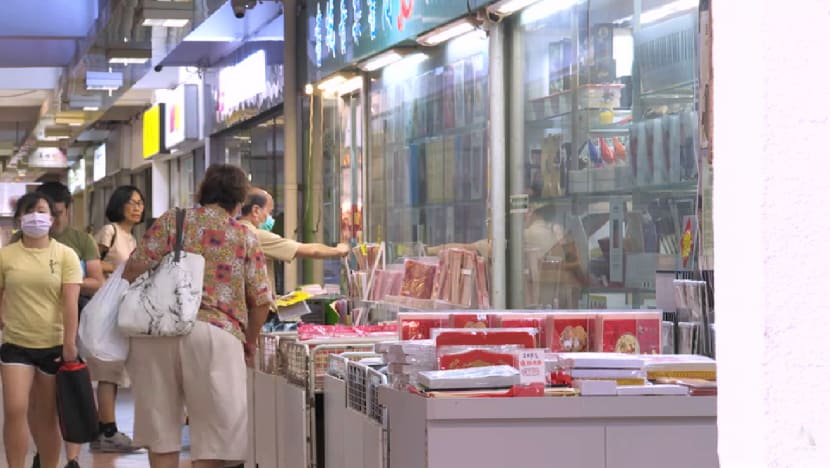Heartland shops on expiring 30-year leases cautious about making long-term plans
About 730 Housing Board heartland shops are on 30-year leases, which will expire progressively from 2024 to 2045.

Some 730 Housing Board heartland shops are on 30-year leases, which will expire progressively from 2024 to 2045.
SINGAPORE: The future is uncertain for Union Book Co – a fixture at Bras Basah Complex – with its 30-year lease set to end in 2028.
The iconic bookstore, where long-time customers make up half its sales, is troubled by the impending tenancy changes.
Like other shops on 30-year leases, it would have to revert to rental tenancy with the Housing and Development Board (HDB) upon expiry of the arrangement. This means it might need to renew its lease every three years.
“We hope the HDB can give us a longer tenancy like five years or 10 years, to let us plan bigger,” said Ms Margaret Ma, Union Book Co’s managing director.
“I want to open up all of these areas to do more things, but I dare not do so. Because I need to confirm whether the tenancy will end in 2028 or whether HDB will renew it.”
About 730 HDB heartland shops are on 30-year leases, which will expire progressively from 2024 to 2045. Such shops are cautious about making long-term plans.
Union Book Co, hoping to improve its chances of having its lease renewed, has come up with events to draw in the crowd. So far, footfall has increased by about 30 per cent.
MORE WEIGHT PLACED ON VALUE THAT SHOPS BRING
But not all shops with expiring leases know how to draw up proposals to reapply for tenancy under the price-quality method (PQM), where tenders will be assessed not just on price, but also on the value the shops bring to the area.
HDB announced changes to the scoring criteria for PQM tenders to better meet the needs of residents and business operators.
The quality of proposal will see an increased weightage of 60 per cent of the scoring criteria, while the tender price will account for the remaining 40 per cent.
The changes will apply to new PQM tenders starting in the first half of next year.
HDB said it will contact affected shop owners and guide them through the transition.
There are about 15,200 shops serving the heartlands, spread across town centres, neighbourhood centres and precinct clusters.
Mr Lai Cheng Yi, executive director of the Federation of Merchants' Association Singapore, said there are some areas with too many of the same shops, which may not be ideal.
“The vibrancy of the heartlands depends on the footfall of people coming in and out,” he added. “If there’s nothing interesting in the heartlands, nobody would really want to come. That’s why balancing the trade mix is the key to ensuring the vibrancy of the heartlands.”
HELPING OLD-TIMERS THROUGH NEW TENDER PROCESS
Many shops are concerned about what would happen after their 30-year lease expires, said Mr Lai, adding that the federation will be stepping up efforts to engage affected shop owners and work with their local merchant associations to offer help.
“If they do face any difficulties in understanding the tender documents and what may be required in the business proposals, they are welcome to approach us and we can give our advice on how to move forward.”
Mr Lai said this includes helping them to prepare for the new tender requirements.
“Collectively, if we think that there is a certain gap that we need to address – for example, some of them might be getting old in age but do not know how to write a good business proposal, even though their business has the cultural value, heritage value or unique offerings to the heartlands – we may get a consultant to come and help them in terms of that,” he added.
So far, more than 20 shops have approached the federation for help, said Mr Lai, who believes shop owners should not be worried about getting edged out by bigger brands as they have the advantage of heritage value.
Heartland entrepreneurs with novel ideas are also encouraged, he added.
“The PQM places more emphasis on the quality rather than the price. If they have a good idea, I think they stand a very good chance.”


















